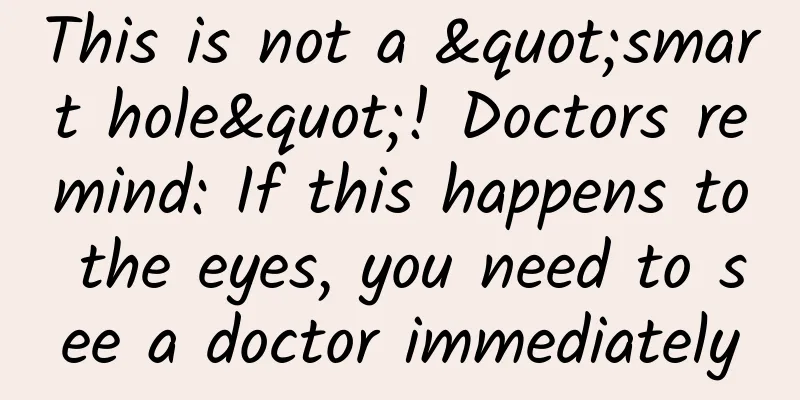"Atrial fibrillation" should not be underestimated! 73-year-old aunt took medicine irregularly and almost caused trouble!

|
The 73-year-old aunt is a retired teacher. She went to the hospital for a sudden heart attack and was diagnosed with atrial fibrillation, or AF for short. The doctor reminded her that she must take medication regularly to control her heart rate and prevent blood clots. At first, the aunt did not take this "little discomfort" seriously, after all, the medicine prescribed by the doctor seemed to effectively relieve her symptoms. Later, the aunt always felt that "taking too much medicine is not good", and often reduced or stopped taking medicine on her own after the symptoms were relieved. However, it was this irregular medication or random discontinuation of medication that almost caused a disaster! On an ordinary night, Auntie and her husband chatted all night. At 5 a.m., Auntie suddenly lost her voice, her left limbs became numb and weak, and she felt nausea and vomited. Then she developed obvious hemiplegia. Her family rushed her to Hunan Wangwang Hospital . After a quick and complete examination, the doctor quickly diagnosed Auntie with "cerebral artery embolism", and the culprit was the embolus that was formed and detached due to atrial fibrillation. Figure 1: The detached embolus blocked the right middle cerebral artery Time is life. For patients with cerebral artery embolism, every minute of delay may increase the risk of permanent brain damage. With the understanding and consent of her family, the aunt was rushed to the operating room for a "mechanical thrombectomy". In the operating room, Huang Longfei, deputy chief physician of the interventional group of the Neurological Medicine Center, and his team began to work in an orderly manner. This is a high-risk and difficult operation that requires extremely delicate operating skills and quick reaction ability. Through cerebral angiography, Dr. Huang accurately located the location of the embolism, and then carefully inserted a thin thrombectomy device into the blood vessels of the aunt's head. As the device slowly moved forward, the embolus that caused the aunt's hemiplegia was finally successfully captured. With the embolus removed, the aunt's life regained hope! Figure 2: After the embolus was removed, the blood vessels returned to normal After the operation, the aunt was sent to the intensive care unit for close observation. Two hours after the operation, the patient woke up. From the initial speech disorder and complete hemiplegia to being able to speak normally and move freely, the aunt finally recovered to normal. The patient's family and medical staff were relieved and overjoyed. Atrial fibrillation is a common arrhythmia characterized by rapid and irregular beating of the heart's upper chambers (atria), which leads to decreased heart efficiency and blood easily accumulates in the atria to form blood clots. According to statistics, the risk of thromboembolic events in patients with atrial fibrillation is much higher than that of ordinary people, among which cerebral embolism is one of the most common complications. So how can patients with atrial fibrillation manage themselves correctly? 1. Take medication regularly: Patients with atrial fibrillation must take medication strictly according to the doctor's instructions and must not increase or decrease the dosage or stop taking the medication at will. 2. Regular monitoring: Patients should go to the hospital regularly for electrocardiogram and blood tests to keep abreast of changes in their condition. 3. Healthy lifestyle: A healthy lifestyle such as quitting smoking and limiting alcohol consumption, controlling weight, exercising moderately, and eating a balanced diet is also important for the management of atrial fibrillation. 4. Seek medical attention promptly: If you experience any discomfort, you should seek medical attention immediately. Do not delay so as not to miss the best time for treatment. Huang Longfei, deputy chief physician of the Neurological Medicine Center of Hunan Want Want Hospital, kindly reminds us: Auntie's story reminds us: Atrial fibrillation should not be taken lightly, and irregular medication may bring serious consequences. Through regular medication, regular monitoring and active lifestyle adjustments, we can effectively manage atrial fibrillation and reduce the risk of related complications. Let us pay attention to heart health together and cherish every heartbeat!
(Edited by Wx) |
Recommend
Symptoms of kidney deficiency and insufficient qi and blood, women should take a look
Kidney deficiency and insufficient qi and blood a...
How to deal with festering wounds?
Many people have experienced this situation befor...
What is the origin of Wenchang Chicken? Introduction to Wenchang Chicken
Wenchang Chicken is the most famous traditional d...
What to do if pregnant women have itchy leucorrhea
Pregnancy is a special period. It is very importa...
How long is the normal amount of bleeding after medical abortion?
In the event of an unexpected pregnancy, many wom...
We catch colds twice a year, and the viruses we infect are different every 100 years丨Virus Super Topic
Cold is a general term for a class of diseases wi...
What kind of woman has a strong sexual desire
What does a woman with a strong sexual desire loo...
What medicine is used for fungal and trichomonal vaginitis
Female friends nowadays have more common gynecolo...
Can pregnant women eat mung bean soup in the early stage
The substances consumed by the expectant mother d...
The perfect protein comparable to animal protein is actually eaten frequently
Many fitness people who dream of having eight-pac...
What is the reason for high bacteria in pregnant women's urine routine test
Pregnant women must pay attention to the examinat...
What are some tips for women to keep healthy in winter?
Winter is a very cold season of the year. People ...
Frequent and strong fetal movements at 20 weeks of pregnancy
Many pregnant women feel fetal movement around 20...
Female high-risk HPV positive 59
Gynecological inflammation has a great impact on ...
What does gynecological imaging check?
Contrast examination is a commonly used examinati...



![[Medical Q&A] What are the applications of electromyography in single nerve damage diseases that cause numbness in the hands and feet?](/upload/images/67f0f1d267ec4.webp)





